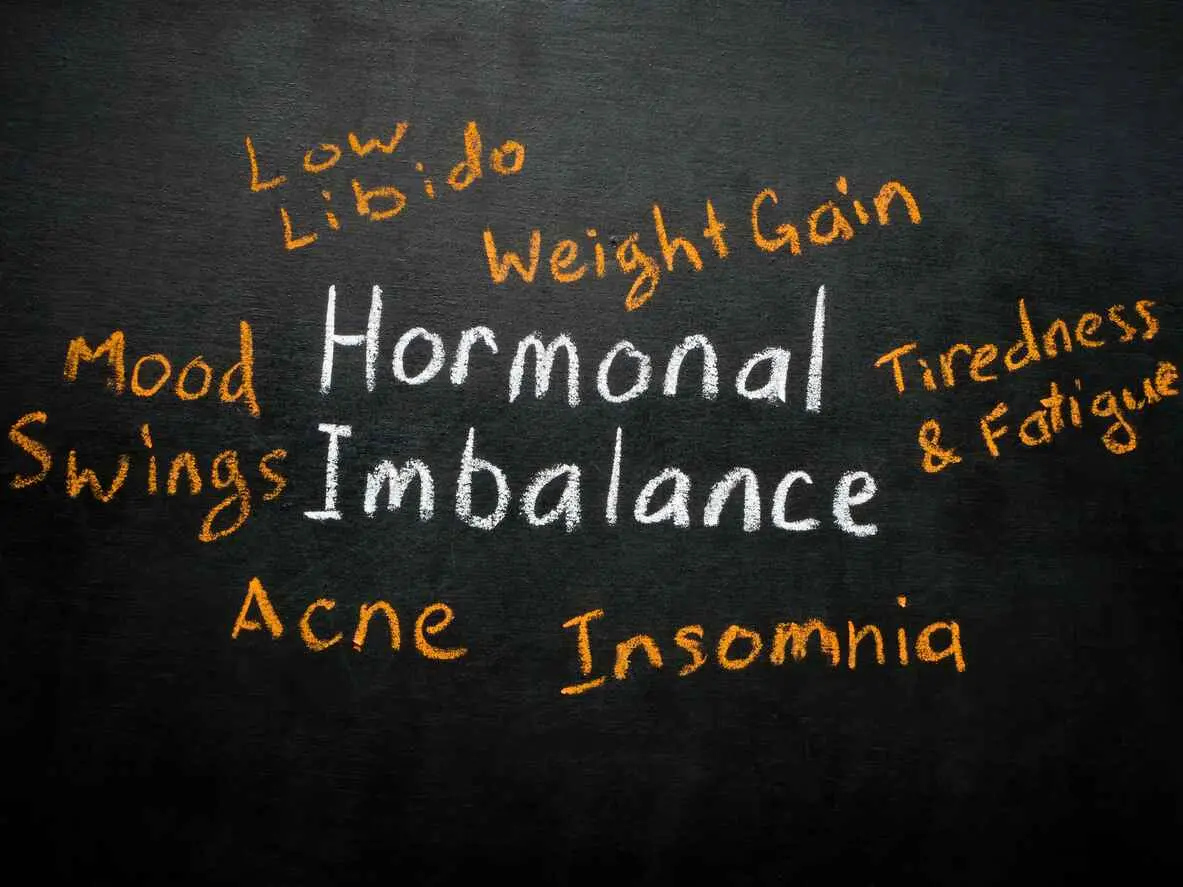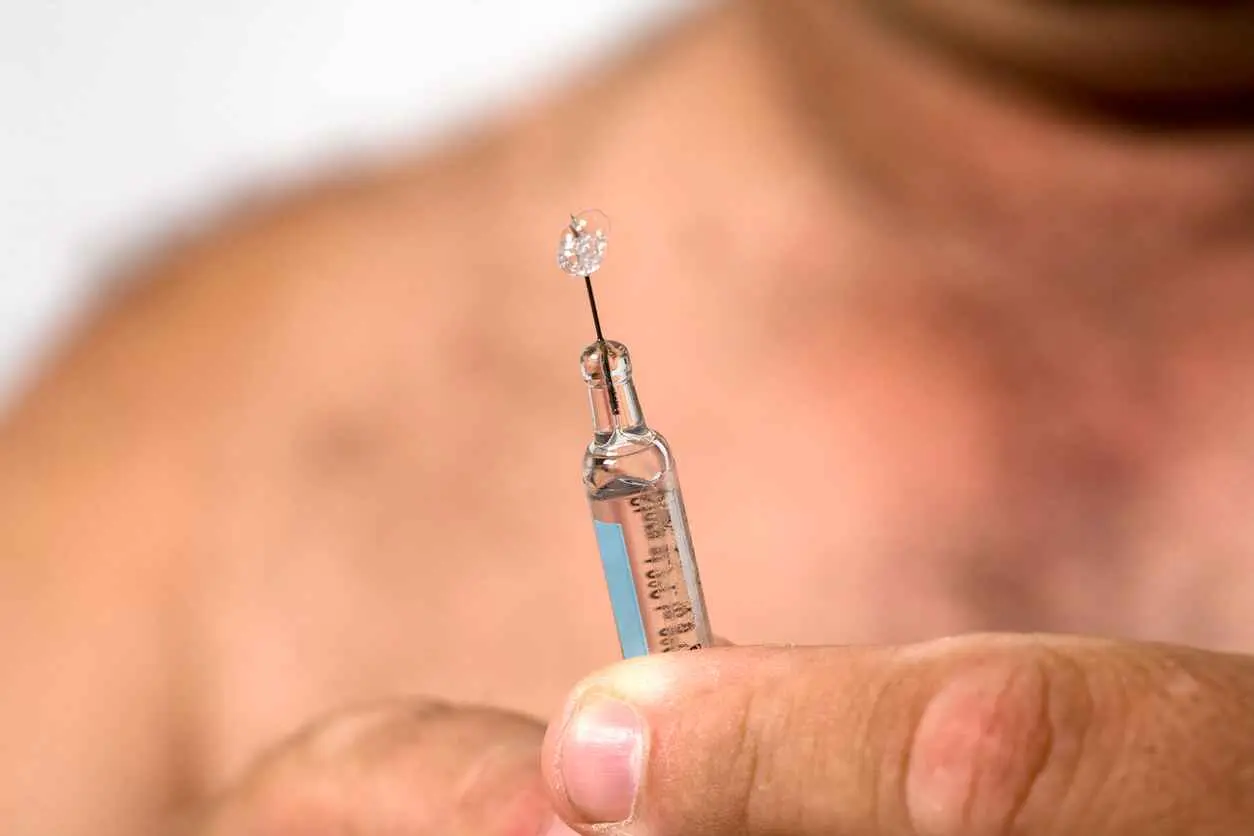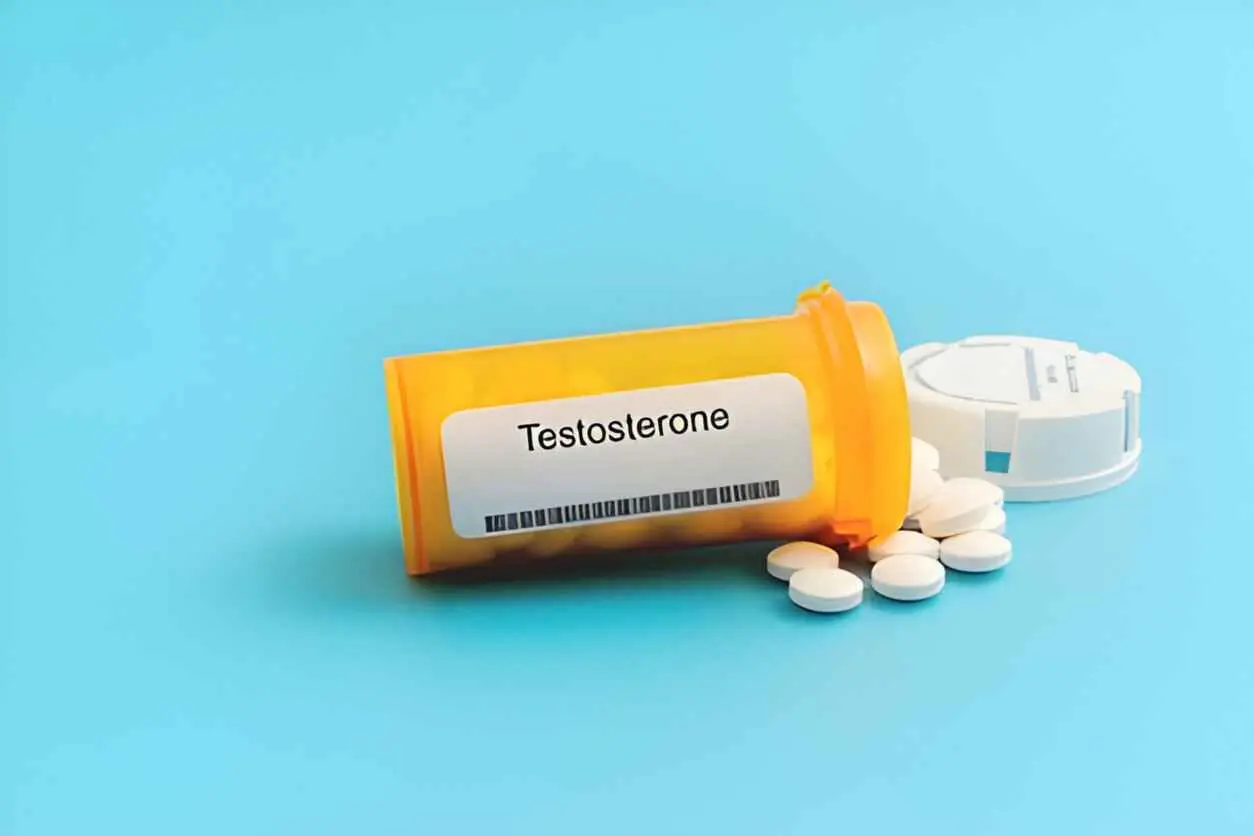
Hormone Imbalance: A Comprehensive Guide To Causes, Symptoms, And Treatment
Hormone Imbalance Treatments for Men & Women | HRT & TRT Benefits
What Is Hormone Imbalance and How Is It Treated?
A hormone imbalance occurs when the body produces either too much or too little of a hormone, resulting in symptoms such as fatigue, mood swings, or weight changes. Treatments include lifestyle changes, hormone replacement therapy (HRT) for women, and testosterone replacement therapy (TRT) for men.
A hormone imbalance happens when your body makes too much or too little of a particular hormone. This can impact aspects such as your mood, sleep, weight, energy, and how your body responds to stress. Even small changes in hormone levels can cause significant effects on how you feel each day.
Hormones are tiny messengers made by special glands in your body, like the thyroid, adrenal glands, ovaries, or testes. These messengers travel through your blood and help control essential bodily functions, such as the rate at which you burn energy, your emotional state, when you feel hungry, and how your body develops.
When your hormones are out of balance, it can lead to tiredness, changes in weight, mood swings, trouble sleeping, skin problems, or changes in your period or sex drive. These signs can be different for everyone, depending on which hormone is affected and what stage of life you are in.
In this guide, we will explore the causes of hormone imbalance, how to recognise its symptoms, and which treatments are effective. You will also learn how factors such as stress, food, sleep, and your environment can affect your hormone health.
What Hormones Do
Hormones are special chemicals that help control how your body works. You can think of them like messengers that carry instructions from one part of your body to another. These messages tell your body when to grow, sleep, feel hungry, feel happy, and many other essential things.
Hormones are made by small organs in your body called glands. Some of these glands are in your brain, neck, and belly. Hormones travel through your blood and ensure that everything is working as it should. Even tiny changes in hormone levels can make a big difference to how you feel.
If your body makes too much or too little of a hormone, you might feel tired, moody, hungry all the time, have trouble sleeping, or notice changes in your skin or weight. That is why maintaining a balanced hormonal system is so important.
Here is a table to help you understand the most common hormones and what they do:
Key Hormones at a Glance
|
Hormone |
Where it is made |
What it does |
If you do not have enough |
If you have too much |
|
Insulin |
Pancreas |
Helps turn sugar into energy |
Tiredness, high blood sugar |
Low blood sugar, shaking, or sweating |
|
Thyroid (T3, T4) |
Thyroid gland (in the neck) |
Controls how fast your body uses energy |
Feeling cold, slow, and gaining weight |
Feeling hot, losing weight, shaky |
|
Cortisol |
Adrenal glands |
Helps with stress and energy |
Fatigued, weak muscles |
Hard to sleep, feeling anxious |
|
Oestrogen |
Ovaries (in females) |
Controls periods and mood |
Irregular periods, low mood |
Bloating, mood swings, heavy periods |
|
Testosterone |
Testes (in males), ovaries |
Builds muscles and supports energy and mood |
Low energy, tiredness |
Acne, aggression, mood swings |
|
Melatonin |
Brain (pineal gland) |
Helps you fall asleep |
Trouble sleeping at night |
Feeling sleepy during the day |
This table shows where each hormone comes from, what it does, and what can happen if your body has too much or too little. Doctors use special blood tests to check your hormone levels and figure out if something is not quite right.
Why Hormone Imbalances Happen
There are many reasons why your hormones might become imbalanced. Sometimes it happens naturally as you grow and change. At other times, an illness can cause it, or it may be influenced by how you live, or even by things around you, such as plastic or certain sprays. Let’s take a look at the leading causes.
1. Natural body changes
Hormone levels change at various times in life. This is entirely normal and happens to everyone. Here are some examples:
- Puberty: When your body starts to grow and change as you become a teenager
- Periods: Hormones rise and fall during the monthly cycle
- Pregnancy: Hormones change to help grow and protect the baby
- Menopause: When periods stop and hormone levels drop in older women
- Getting older: Some hormones, like testosterone, slowly lower as people age
2. Health problems
Some illnesses can affect how your body makes hormones. These include:
- Thyroid problems: This small gland in your neck controls your body’s energy
- PCOS (Polycystic Ovary Syndrome): A common condition that affects periods and can cause extra hair, spots, and weight gain
- Diabetes: A problem with a hormone called insulin that controls sugar in your blood
- Adrenal problems: These glands help with stress and energy levels
- Pituitary gland problems: This tiny gland in your brain helps control many other hormone glands
3. Your daily habits
Your lifestyle can also impact your hormones. For example:
- Stress: Feeling worried or under pressure for too long can raise stress hormones like cortisol
- Not enough sleep: Your body needs sleep to keep hormone levels steady
- Unhealthy food: Eating too much sugar or fast food can upset your hormones
- No exercise: Moving your body helps keep your hormones working properly
4. Chemicals in the environment
Some products have chemicals that can act like fake hormones. These are called endocrine disruptors. You might find them in:
- Plastic bottles and containers
- Some sprays used on fruit and vegetables (pesticides)
- Perfumes and some skin creams or makeup
Over time, these chemicals can confuse your body and cause hormone problems.
Signs Of Hormone Imbalance
Hormone imbalance can cause various symptoms, depending on which hormone is out of balance. Common signs that affect people of all genders include:
- Mood changes
- Depression
- Anxiety
- Sudden weight gain or loss
- Thinning or loss of hair
- Fatigue
- Joint pain
- Muscle stiffness
- Memory problems
- Increased thirst or hunger
- Frequent urination
- Acne
- Sweating
- Low sex drive
Remember, these symptoms can also be caused by many other health issues. Having these symptoms doesn't always mean you have a hormone imbalance. It's important to talk to your doctor about your symptoms so they can help determine the cause.
Hormone Imbalance Symptoms In Females
Women may experience the following symptoms due to hormone imbalance:
- Irregular periods
- Hair loss
- Facial or body hair growth
- Night sweats
- Low sex drive
- Unexpected weight gain
- Vaginal dryness
- Infertility
- Mood swings
- Hyperpigmentation
- Vaginal atrophy
- Hormone Imbalance Symptoms In Males
In men, the following symptoms can happen due to hormone imbalances:
- Low energy levels
- Breast tenderness
- Erectile dysfunction
- Hair loss
- Muscle loss
- Low sex drive
- Increase in male breast size
- Infertility
- Difficulty concentrating
- Brittle bones
What Causes Hormone Imbalance?
Hormone level changes during pregnancy, puberty, and menopause are normal. But they can also happen if your endocrine glands don't work right.
Endocrine glands are parts of your body that make, release, and store hormones. Various health conditions, lifestyle habits, and environmental factors can disrupt these glands and cause hormone imbalances.
Common health conditions that cause hormone imbalance include:
- Genetic disorders like Cushing’s syndrome, Addison’s disease, and Klinefelter’s syndrome
- Hypogonadism
- Brain injury
- Pancreatitis
- PCOS (Polycystic Ovary Syndrome)
- Menopause
- Brain tumours
- Hyperthyroidism
- Type 1 and type 2 diabetes
- Cancer related to an adrenal gland
- Goiter
- Injury to an adrenal gland
These lifestyle habits can also lead to hormone imbalance:
- Poor eating habits
- Excessive alcohol consumption
- Stress
- Drug abuse
- Lack of physical activity
- Inadequate sleep
- Being overweight
Environmental factors that can cause hormonal problems include:
- Plastics containing bisphenol A (BPA)
- Air pollutants like volatile organic compounds (VOCs)
- Chemotherapy
- Radiation
- Birth control pills
- Hormone replacement therapies
When to See a Doctor
Some hormone changes are normal, especially as you grow or go through new stages in life. However, sometimes hormone problems require medical attention.
You should see a doctor if you notice any of the signs below, especially if they persist for a long time or worsen over time.
Signs you should not ignore:
- Gaining or losing a lot of weight without trying
- Feeling tired all the time, even after sleeping well
- Mood swings that make school or home life hard
- Periods that stop for a long time or become very heavy or painful
- Having trouble sleeping for many nights in a row
- Hair falling out or growing in unusual places
- Skin changes, like dark patches or lots of spots
- Feeling very hot or cold when others do not
- Losing interest in things you used to enjoy
- Feeling dizzy, shaky, or faint without an apparent reason
- Fluid leaking from the nipples when not pregnant or breastfeeding
- Terrible headaches with vision problems
These symptoms might mean something is going wrong with your hormones or another part of your body. The doctor can ask questions, do tests, and help you feel better.
Do not be afraid to ask for help. You are not alone, and the sooner you talk to someone, the sooner you can start feeling better.
How Do Doctors Test For Hormone Imbalance?
Doctors use different methods to diagnose hormone imbalance. They suggest tests based on your symptoms and the suspected hormonal issue. The results of these tests help them create an effective treatment plan.
Medical history: Your doctor will ask questions about your health, including your diet, surgeries, medications, supplements, allergies, illnesses, and vaccines.
Physical examination: This is done to look for signs of hormone imbalance. Important aspects include:
- General appearance (weight, skin tone, signs of fluid retention, and hair growth)
- Vital signs (temperature, heartbeat, and blood pressure)
- Palpation (feeling parts of your body with your hands)
- Breast and pelvic examination
- Neurological assessment
Hormone imbalance tests: They may suggest one or more of these diagnostic tests:
Blood tests: Most hormones can be detected in blood. Your doctor will collect and send a blood sample to the lab for examination. Since hormone levels fluctuate throughout the day, these samples are drawn at specific times for accurate results.
Saliva or urine tests: Some hormones are tested using saliva or urine samples.
Imaging tests: These tests visualise glands or organs associated with hormone production. Standard imaging tests include ultrasound, CT, MRI, X-ray, and thyroid scan.
Additional tests: These can diagnose specific hormonal issues:
- Sperm count test
- Biopsy
- Genetic tests
- Stimulation or suppression tests
Treatment of Hormone Imbalance
Doctors use different treatments to restore healthy hormone levels. Options vary depending on whether the patient is male or female, and the specific hormones involved.
1. Hormone Replacement Therapy (HRT)
HRT helps restore hormone levels, particularly during menopause, when estrogen production decreases. There are two main types:
- Estrogen-only therapy – Recommended for women who have had a hysterectomy. Estrogen can be taken as a pill, patch, gel, or cream.
- Combination therapy – Uses both estrogen and progesterone. This is typically prescribed for women who still have their uterus, as progesterone helps protect against certain risks linked to estrogen-only treatment.
2. Vaginal Estrogen
For women experiencing vaginal dryness, discomfort, or pain during intercourse due to low estrogen, localized estrogen therapy (such as creams, tablets, or rings) can be very effective.
3. Birth Control Pills
Oral contraceptives can regulate menstrual cycles, reduce acne, and help manage excess hair growth. They are handy for women not trying to conceive.
4. Anti-Androgen Medications
Androgens (male hormones) are naturally present in women at lower levels. When levels are too high, symptoms such as acne, excess hair growth, or irregular cycles may occur. Anti-androgen medications help block these effects.
Treatments for Men
1. Testosterone Replacement Therapy (TRT)
TRT is an FDA-approved treatment for men with clinically low testosterone levels. Testosterone naturally declines with age, but certain medical conditions can also cause deficiencies.
Common symptoms of low testosterone include:
- Fatigue
- Low sex drive
- Depression or mood changes
- Muscle weakness or loss
TRT can restore testosterone levels, improving energy, libido, mood, and overall quality of life.
Note: Hormone therapies should always be prescribed and monitored by a qualified healthcare provider, as risks and side effects vary depending on age, medical history, and individual health needs.
What Else You Should Know About Testosterone Replacement Therapy (TRT)
Testosterone can be delivered in different ways, allowing men to choose the option that best fits their lifestyle and preferences. Standard TRT methods include:
1. Injections
- Testosterone is injected into a muscle, usually in the buttocks (gluteal muscles).
- Available in different formulations and doses.
- Frequency may range from every few days to every few weeks, depending on the type.
2. Patches
- Worn on clean, dry skin once a day.
- Slowly release testosterone through the skin for a steady 24-hour supply
- Typically applied to the back, abdomen, thighs, or upper arms.
3. Gels and Creams
- Applied daily to the shoulders, upper arms, or abdomen.
- Testosterone is absorbed directly through the skin into the bloodstream.
- It is vital to avoid skin-to-skin contact with others until the area is dry to prevent accidental transfer.
4. Pellets
- Small pellets are implanted under the skin during a minor surgical procedure.
- Provide a continuous testosterone supply for up to six months.
- Need to be replaced once their effect wears off.
Testosterone Replacement Therapy (TRT) Options: Pros & Cons
|
Method |
Pros |
Cons |
|---|---|---|
|
Injections |
Long-lasting, cost-effective |
Peaks & troughs require needles |
|
Patches |
Steady hormone release, easy to apply |
May cause skin irritation |
|
Gels & Creams |
Simple, needle-free, stable levels |
Risk of transfer to others |
|
Pellets |
Last 3–6 months, steady release |
Requires minor surgery, infection risk |
FAQ – Hormone Imbalance, HRT & TRT
-
What are common signs of hormone imbalance?
Common hormone imbalance symptoms include fatigue, weight changes, mood swings, low sex drive, hair loss, and sleep problems.
-
How do doctors test for hormone imbalance?
Doctors use blood, urine, or saliva tests along with physical exams and imaging scans to measure hormone levels and identify underlying issues.
-
What treatments are available for women with hormone imbalance?
Women may benefit from hormone replacement therapy (HRT), vaginal estrogen, anti-androgen medications, or birth control pills to regulate cycles and relieve symptoms.
-
What treatments are available for men with a hormone imbalance?
Testosterone replacement therapy (TRT) is the primary treatment for men with low testosterone. Options include injections, gels, patches, or pellets.
-
Is hormone replacement therapy safe long-term?
HRT and TRT can be safe when monitored by a doctor with regular check-ups. Risks may include blood clots, prostate issues, or cardiovascular side effects.
-
Can TRT or HRT help with weight management?
Yes, restoring hormones to normal levels can improve body composition by increasing muscle mass, reducing fat, and boosting metabolism.
-
How long before results are seen with HRT or TRT?
Improvements in energy and mood may be noticeable within weeks, while changes in muscle, bone health, and libido typically take 2–6 months.
Conclusion Hormone Imbalance Treatments for Men & Women
Hormone imbalance is a common problem among men and women, affecting millions of people every year. While it can sometimes resolve independently, it often requires proper treatment.
Doctors use different methods to address hormonal problems based on their underlying causes. If you are experiencing symptoms of hormone imbalance, it's essential to consult a hormone specialist regarding starting Testosterone Replacement Therapy


